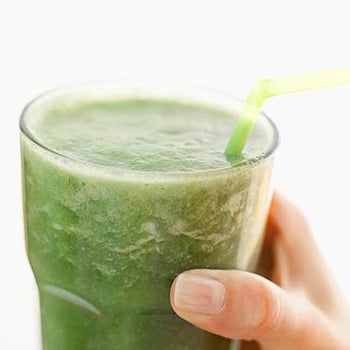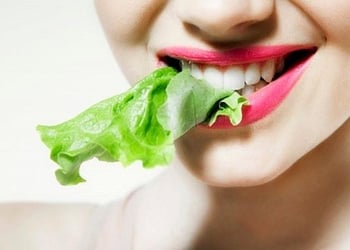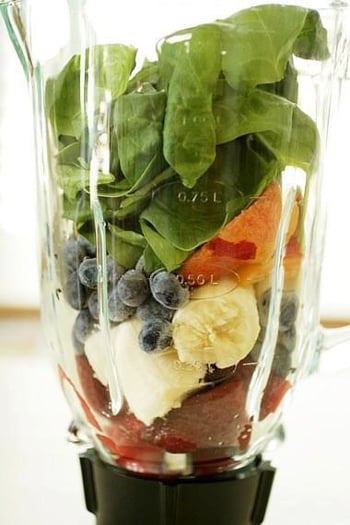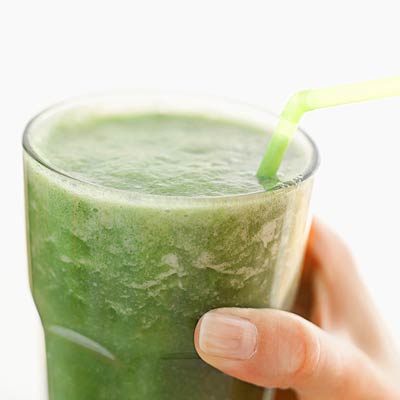 Christina: This is Christina with the DVCC and today I’m joined with Ryan, trainer at the DVCC’s Milton Keynes location, to discuss juice cleanses, or rather why juice cleanses are not good for you.
Christina: This is Christina with the DVCC and today I’m joined with Ryan, trainer at the DVCC’s Milton Keynes location, to discuss juice cleanses, or rather why juice cleanses are not good for you.
Hi Ryan, we’re here today to talk about juice cleanses; what exactly are these juice cleanses?
Ryan: The idea behind the juice cleanse is that on average, for around three to seven days you replace all food with juices made purely from fruit and vegetables, in an attempt to either remove harmful toxins from the body or lose weight.
The idea behind it is pretty much that by removing the focus from digesting solid food, you actually make it more efficient and you can release the toxins you want.
Christina: But you have to drink only juice for three to seven days?
Ryan: That’s correct, yes.
Christina: That sounds hard; why do you think they’re so popular?
Ryan: I think the only reason they’re popular is because they offer somebody a quick fix and it’s pretty simple to follow. Obviously it’s short term so it’s three to seven days and, with the amount of companies out there now selling it, the marketing behind it is making it more popular, in my opinion, than what it should be. And really it’s down to the fact that although the sustainability isn’t there, it offers somebody that short, quick term result that they want.
Christina: Do you think it’s over promising?
Ryan: Yes, definitely, yes.
Christina: Is there any evidence that juice cleanses work at all?
Ryan: There is some evidence to prove that they do work, either by detoxifying the body or for losing weight, but in my opinion a lot of these claims are pretty inaccurate. There has been a lot of evidence to show that they aren’t effective enough and that in fact they don’t offer you any health benefit whatsoever.
Christina: So all that drinking juice doesn’t offer you any benefits at all?
Ryan: It’s not that it doesn’t offer you a benefit; there is a benefit to a juice in terms of what you’re putting in it, but as a diet of purely that, then no, there’s no evidence to prove that it provides you with any health benefit.
Christina: Why are they so bad for us then?
Ryan: It’s more the fact the way that they’re done that’s the problem. By cutting out all of the food, the sustainability of the product and the results is pretty short term.
So you’ll naturally lose weight at the start, but as soon as food is reintroduced, you are naturally going to put that back on.
In my opinion, like I said, actually having a juice as part of a sustainable diet wouldn’t be the problem and for me it’s more the misleading claims that go alongside it and how it’s going to affect you in terms of health.
Christina: So people are losing weight quickly, but then when they stop drinking juice and start eating regularly, it’s likely that they’ll put the weight back on?
 Ryan: Yes, very much so. Basically, as we take on solid food, our body will retain water in order to digest that food; so when we stop taking on the solid food we don’t need that water, so the majority of the time the weight loss that we actually get is just that water and as soon as we start taking on food again and retaining water, it comes straight back on.
Ryan: Yes, very much so. Basically, as we take on solid food, our body will retain water in order to digest that food; so when we stop taking on the solid food we don’t need that water, so the majority of the time the weight loss that we actually get is just that water and as soon as we start taking on food again and retaining water, it comes straight back on.
Christina: Apart from that, are there any other unwanted effects that a juice cleanse can have, short and long term?
Ryan: Yes, there are some short term and long term effects.
Short term, cleanses can really reduce your energy levels, giving you headaches as you detoxify; also psychologically it can be a huge negative for many people.
For myself, I like to think of food as not only as fuel but as part of life, so we take a lot of comfort in having good food, we socialise having good food, and it’s part of everybody’s life, so cutting it out completely can be really damaging, short term, to somebody, which long term can affect their psychological state and put more stress on their body.
On top of that, like the long term juices, there’s no evidence to show that they have huge negative effects but neither are they positive, as the short term is reversible.
Christina: I see. What about naturally squeezed juices; I assume that we’re talking about naturally squeezed juices for these cleanses and not carton juices?
Ryan: Yes, it’s all natural and that’s what it should be. If you were going to make a juice, I would suggest always making sure that it’s the quality that you have within each of the products. So for me, going for a company that’s selling a juice is always a bit of a dodgy subject in terms of the fact that we’re not 100% sure what’s actually going into the products. So if you were going to make a juice, make sure that you know everything that’s going in.
Juices, when naturally squeezed, yes they can have their health benefits, but it should be alongside food for definite, as it’s not going to provide you with all the nutrients you need within the body.
Christina: There is actually quite a lot of sugar in juice, isn’t there?
 Ryan: Yes, there can be; there can be a huge amount of sugar in juice and obviously that sugar, when it goes into the body and tries to optimise body composition is difficult, as we’re trying to balance our hormones and taking on a lot of sugar can have a negative effect on our hormones.
Ryan: Yes, there can be; there can be a huge amount of sugar in juice and obviously that sugar, when it goes into the body and tries to optimise body composition is difficult, as we’re trying to balance our hormones and taking on a lot of sugar can have a negative effect on our hormones.
Therefore, if you were to opt for a juice as part of a sustainable and healthy balanced diet, I would always look at a 3:1 ratio of vegetables to fruit.
Christina: So you’d have three vegetables to one fruit?
Ryan: Yes, correct.
Christina: What’s the best way, if I do want to purify my body and get rid of toxins, what’s the best way of doing that?
Ryan: Whole foods, good quality protein and plenty of vegetables; these are your best purifiers - they are scientifically proven to help with digestion and help with detoxifying the body. These foods, whole foods and natural foods, are less likely to have any sort of inflammatory response on the body and, with that, like I said, will help with your digestive tract.
Christina: What if I want to lose weight fast: what’s a good alternative to a juice cleanse?
Ryan: I am always an advocate of just consistent eating patterns; this will help to elevate your metabolism and provide your body with the nutrients that it requires, and get you into a healthy state and something that’s more sustainable.
Christina: I see, so losing weight fast is not really a good option then?
Ryan: I wouldn’t say that it’s not a good option; it’s something that you don’t want to set your sights on. You can lose weight quickly, for instance, here at the DVCC we regularly see clients lose between 12 to 14lbs in the first six weeks.
But I would say that weight loss is more of a marathon than a sprint; you want to make sure that you’re setting short term goals where you’re making sure you optimise your health at the same time as losing weight. And then it comes down to the person, it comes down to what they are doing alongside their eating patterns, to how quickly they will lose this weight.
Christina: So alongside a healthy eating pattern with lots of protein and vegetables, what is a recommended amount of exercise people should be doing to lose weight?
Ryan: You want to make sure that the training is consistent and I would say that here we set sights of three sessions, four sessions being optimal, based on the fact that you’re training more days than you’re not within a week. But three is definitely a good marker and will get you very good results.
Christina: Ok, so three, you’ll see results; what about two or one, is that just not really enough?
Ryan: Absolutely not, no. One is better than no sessions and they’re all going to help you get your results; obviously when you’re looking to lose weight it’s all about the idea of taking in less calories than you’re burning, so it would just mean that you would probably reduce the amount of food that you’re eating, especially on the days that you’re not training.
Christina: Great – do you have anything else to add?
Ryan: Yes, I would just say always think about sustainability. When it comes to nutrition, you’ve got to think of something that’s long term, as the majority of crash diets and quick weight loss diets are short term results and 99% of the time are reversible.
It’s very easy to get caught up in the hype of a lot of juicing companies and other supplement companies out there, but I would just say look at something and whether it’s conclusively scientifically based; if not, then stay away from it.
Christina: Great, thank you very much, Ryan.
Ryan: No problem at all.
Christina: The DVCC has centres in Bedford, Milton Keynes, Northampton, Hitchin and very shortly St. Albans and Central Bedfordshire. So if you’ve been listening to this interview and you’d like to find out more about how the DVCC can help you, then please book an appointment for a DVCC 60 minute discovery call, at www.theDVCC.com/signup.









